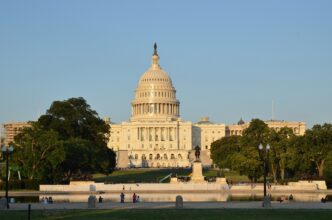Executive Summary
- A rightward political shift is underway in South America, most notably in Chile, where far-right candidate José Antonio Kast advanced to a presidential runoff.
- The conservative trend, also seen in Argentina and Bolivia, aligns with the policies of President Donald Trump on key issues like security and immigration.
- This realignment holds geopolitical significance, potentially bolstering U.S. efforts to counter Chinese influence and secure access to critical resources like lithium.
- Public concern over rising crime and migration is a primary factor driving voters toward conservative candidates across the region.
A significant rightward political shift is occurring across several South American nations, including Chile and Argentina, a trend that is seen as potentially aligning the region more closely with the strategic interests of the United States under President Donald Trump. This conservative wave is marked by the rise of candidates who champion hardline policies on security, immigration, and economic management, echoing platforms advanced by the Trump administration.
In Chile, the presidential election has drawn international attention as far-right candidate José Antonio Kast is set to face Communist contender Jeannette Jara in a December 14 runoff. Kast, who has been widely compared to President Trump, has based his campaign on a law-and-order platform. According to The Guardian, his proposals include constructing border walls and trenches to curb illegal immigration, reflecting a “Make Chile Great Again” approach.
The move toward conservative candidates in Chile appears to be driven by public anxiety over security. The Washington Post reports that organized crime and violence associated with migration have become dominant issues in the public discourse, influencing voter sentiment. Over 70% of voters supported right-wing candidates in the first round of the election, according to Reuters, positioning Kast strongly for the runoff.
This trend extends beyond Chile. In Argentina, President Javier Milei has reportedly fortified his ideological alignment with President Trump. Meanwhile, Bolivia’s election of a centrist president after nearly two decades of socialist rule, and the attendance of the U.S. deputy secretary of state at the inauguration, signals renewed engagement with Washington, as reported by the Associated Press. Conservative candidates are also gaining traction in upcoming elections in Peru and Colombia.
The ideological turn carries broader geopolitical weight. Chile holds substantial reserves of copper and lithium, which are critical for renewable energy technologies. According to Foreign Policy, a Chilean government aligned with the U.S. could bolster American efforts to counter China’s growing economic influence in Latin America.
Political analysts cited by The Guardian describe this period as one of the most significant ideological shifts in the region in decades. Taken together, these developments suggest that a substantial portion of South America may be moving closer to Washington’s strategic priorities, particularly concerning security cooperation, foreign investment, and access to critical natural resources.






